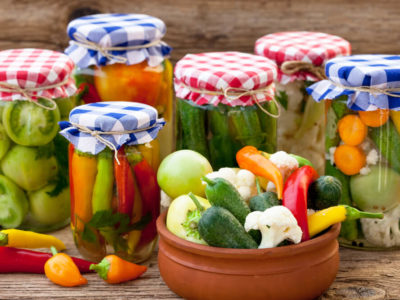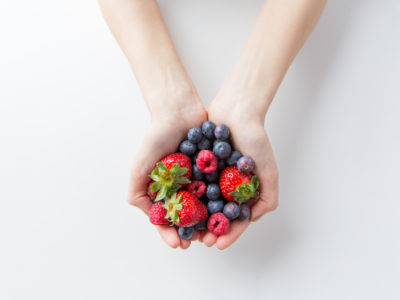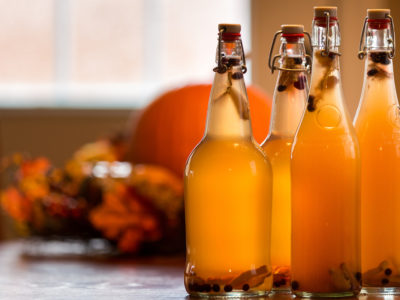How is it that in period pieces, medieval knights drink ale at every meal (breakfast included) and Roman soldiers and Nordic Vikings are constantly guzzling wine?
Was it really like that? And if so, why weren’t they all sick all the time? It’s difficult to imagine drinking a vat of the $15.95 bottle of wine from the liquor store without becoming violently ill.
The answer isn’t so simple… but it boils down to this: Alcohol just isn’t made like it used to be.
Ale, for a long period of history, was cleaner and safer to drink than water, in most heavily populated areas. Wine was full of powerful and beneficial bacteria that bolstered the immune system.
Now, because we live in a want-based economy rather than a resource-based economy, we’ve changed the way that we make alcohol.
Commercial domestic beer isn’t made in small, local batches of fermented yeast. The grains, hops, and yeast grown for beer production are bred in monumental, industrial, mono-culture plots sprayed with pesticides and herbicides. This negates any benefits gleaned from the natural ingredients used in ancient ale.
The same is true for wine – we just don’t make it like we used to. Because of all of the modifications we can make to taste, color, and alcohol content post-grape-picking, wine has lost a lot of its former power.
We’ve talked before about the homogenization of commercial wines… how you think you’re making a choice based on flavor profile, content, health benefits, and price, but you’re not.
What you’re drinking may be further from real wine than you realize.
You see, when wine ferments in nature, it’s full of bacteria and native yeast.
Fermenting and the Gut
You probably already know that the bacteria in your gut outnumber the cells in your body.
Maybe you also know that the gut is responsible for the production of several key hormones and neurotransmitters, like 90% of your serotonin.
Now, the problem with regular, commercial, liquor store wines is two-fold:
- Alcohol itself is a toxin linked to inflammation and gut permeability – you know, the loosening of joints in the intestines (known as leaky gut) which allows foreign materials to pass into and out of the intestines.
- The fermentation process of most wines leaves sugar in the wine, which feeds harmful bacteria like Candida in the gut.
While it’s true that alcohol is a toxin, the natural compounds in wine can actually be quite beneficial.
Organic grapes, for example, are high in polyphenols and antioxidants (like resveratrol).
The bacteria that results from the fermentation process is an excellent probiotic, just like fermented cabbage (sauerkraut) and fermented tea (kombucha) are probiotics.
But in commercially produced wines, the fermentation process is clinical, induced, and stunted, which means that the native yeast in the wine doesn’t have the chance to eat all of the glucose that lives inside grapes. (That’s why the sugar content is so high in commercial wines.)
Which is why we have an opportunity here…
We don’t have to accept the flat and sterile wines that we’re offered.
There are other companies out there, offering a top-down return to the way we used to drink wine…
Alive with the Glory of Wine
Meet Dry Farm Wines.
Their wine isn’t just better for you… it’s better for the world.
You see, they only source their grapes from sustainable and small-batch family farms, largely from Europe – France, Germany, Italy, and other places that still adhere to Old World farming techniques, ensuring there’s no more than 12.5% alcohol content in their wine.
These farms use a wide range of techniques with one thing in common – they’re all safe and natural, including:
- Natural farming
- Sustainable farming
- Biodynamic viticulture and farming
- Dry farming (without irrigation, only relying on rain)
Not only that, but they use wild native yeast and older growth vines (which means they are closer to self-regulation and require less interference).
None of the wines sold by Dry Farm Wines include commercial yeast, and they all keep filtering, new oak use, sulfite additions, chaptalization (adding sugar during fermentation), and chemical additives to a minimum, if they can’t completely eradicate them.
Todd White, the founder of Dry Farm Wines and self-described “bio-hacker”, takes great pride in keeping his wines statistically sugar-free, mycotoxin and mold free, low in sulfites, low in carbs, and paleo and keto diet-friendly.
By rigorously testing all of their wines, the company is able to ensure that each bottle contains less than 70 parts per million of sulfites and less than two parts per billion of mycotoxins.
The coolest thing about the wine? Because of the low sulfite content, if you leave a bottle out overnight… you’ll wake up to a different wine. The cultures in the wine are alive and free.
You can order delivery from them and try it out!
Right now? Companies are paying attention. Some are in danger of filing for bankruptcy. And your dollars are having more of an impact than ever before. The old capitalism is teetering on the brink of collapse…
It’s possible to support your health while supporting the efforts of a business that cares what its product does for you and for the environment – that’s conscious capitalism.
You May Also Like…




